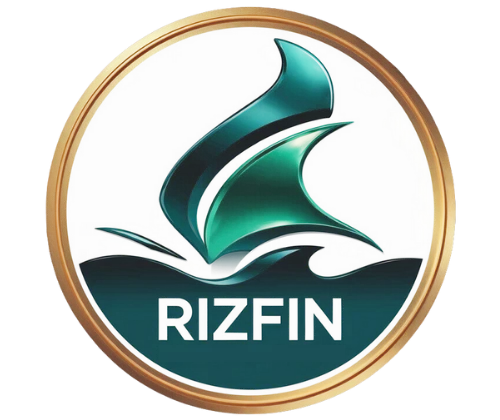Value-Added Tax (VAT) remains one of the most crucial — and often misunderstood — tax obligations for businesses in Ireland. In the evolving regulatory landscape, especially with the updates in VAT in Ireland 2025, staying compliant is essential for avoiding penalties and maintaining accurate financial records. Whether you’re a startup founder or managing an established SME, understanding how VAT in Ireland 2025 works will help you make smarter business decisions.
💡What Is VAT?
VAT is an indirect tax applied to most goods and services. Although it’s ultimately paid by the end consumer, businesses play an essential role in the VAT process. They must:
-
Charge VAT on taxable sales (output VAT)
-
Reclaim VAT on allowable business expenses (input VAT)
-
File VAT returns regularly via the Revenue Online Service (ROS)
Understanding your role in VAT in Ireland 2025 means recognizing that VAT isn’t just a tax—it’s a core component of your business’s cash flow and reporting obligations.
⚖️The Legal Framework Behind VAT in Ireland 2025
The legal basis for VAT in Ireland is set out in the following key legislative texts:
-
VAT Consolidation Act 2010
-
VAT Regulations 2010
-
EU VAT Directive 2006/112/EC
These laws form the foundation for the modern approach to VAT in Ireland 2025, ensuring that businesses operate within a unified European VAT structure.
🔗 VAT Notes for Guidance – Revenue.ie
📊 VAT Rates in Ireland (2025)
One of the most important things businesses need to understand under VAT in Ireland 2025 is the applicable rate for their goods or services. The current VAT rates are:
| Rate | Applies To |
|---|---|
| 0% | Food staples, books, children’s clothing, medicines |
| 4.8% | Livestock and greyhounds |
| 9% | Tourism, hospitality, electricity, heat pumps |
| 13.5% | Construction, fuel, hairdressing, cleaning |
| 23% | Most goods and services (standard rate) |
🔗 Search VAT Rates – Revenue.ie
Understanding which rate applies to your business is a critical part of being compliant with VAT in Ireland 2025.
🚫 VAT-Exempt vs. Zero-Rated: What’s the Difference?
Not all non-taxed items are treated the same way under VAT in Ireland 2025. Here’s the key difference:
-
Zero-rated goods/services: VAT is not charged on sales, but businesses can still reclaim input VAT.
-
Exempt items: No VAT is charged, and input VAT cannot be reclaimed.
Knowing how your sales are classified can affect both your pricing and your ability to reclaim VAT.
🔁 Understanding the Reverse Charge Mechanism
When dealing with cross-border transactions, especially within the EU, VAT in Ireland 2025 continues to apply the reverse charge mechanism. This rule requires Irish businesses purchasing services from outside Ireland to:
-
Account for VAT as if they supplied the service themselves (Box T1)
-
Reclaim the VAT as input if eligible (Box T2)
-
Report both on their VAT3 return
This mechanism helps prevent tax evasion and simplifies intra-EU trade compliance.
📥 Filing VAT Returns (VAT3) via ROS
Under VAT in Ireland 2025, most VAT-registered businesses must file a VAT3 return every two months. The return includes the following boxes:
-
T1 – VAT on sales (output)
-
T2 – VAT on purchases (input)
-
T3 – Net VAT payable
-
T4 – VAT repayable
-
E1–ES2 – EU goods/services transactions
Timely and accurate filing ensures compliance and cash flow predictability.
📅 Annual Return of Trading Details (RTD)
All businesses registered for VAT in Ireland must file the Annual Return of Trading Details (RTD). As part of VAT in Ireland 2025, this remains a requirement to summarise all sales and purchases by applicable VAT rate. Key facts:
-
Must align with your VAT3 returns
-
Due by January 23rd each year
-
Filed via ROS
📈 VAT Registration Thresholds (2025)
Your obligation to register for VAT depends on your turnover. Under VAT in Ireland 2025, the thresholds are:
| Business Type | Threshold |
|---|---|
| Goods | €85,000 |
| Services | €42,500 |
| Intra-EU Acquisitions | €41,000 |
Failing to register once these thresholds are crossed can result in backdated VAT liabilities.
🌍 EU SME VAT Scheme Now Applies
Good news for small businesses: VAT in Ireland 2025 includes full implementation of the EU SME VAT Scheme. This allows eligible Irish businesses to:
-
Sell goods/services across the EU up to €100,000/year without registering for local VAT in each country
-
File through the One-Stop-Shop (OSS), streamlining reporting
This is especially beneficial for digital or service-based businesses expanding across borders.
💻 VAT on Digital Services & Virtual Events
As virtual events and digital services grow, VAT in Ireland 2025 introduces updated rules for B2B and B2C transactions:
-
B2B: The reverse charge applies
-
B2C: VAT is applied based on the customer’s location
Irish digital businesses must stay informed to avoid charging the wrong rate or failing to report foreign transactions correctly.
✅ Practical VAT Compliance Tips
To stay compliant with VAT in Ireland 2025, here are some best practices:
-
-
Use cloud accounting tools like Xero or Sage
-
Reconcile VAT3 with your accounts — and make sure your records are accurate by following our small business bookkeeping guide.
-
Keep digital and physical copies of all receipts and returns
-
Use Revenue’s official exchange rates for foreign transactions
-
Communicate with Revenue via MyEnquiries on ROS
-
🤝 How RizFin Can Help
Navigating VAT in Ireland 2025 can be complex, especially for small businesses. At RizFin, we help you:
-
Register for VAT and understand your obligations
-
Stay up to date with filing deadlines (VAT3 and RTD)
-
Align your bookkeeping with Revenue expectations
-
Avoid penalties, overpayments, and missed reclaim opportunities
Get peace of mind about your VAT position today.




